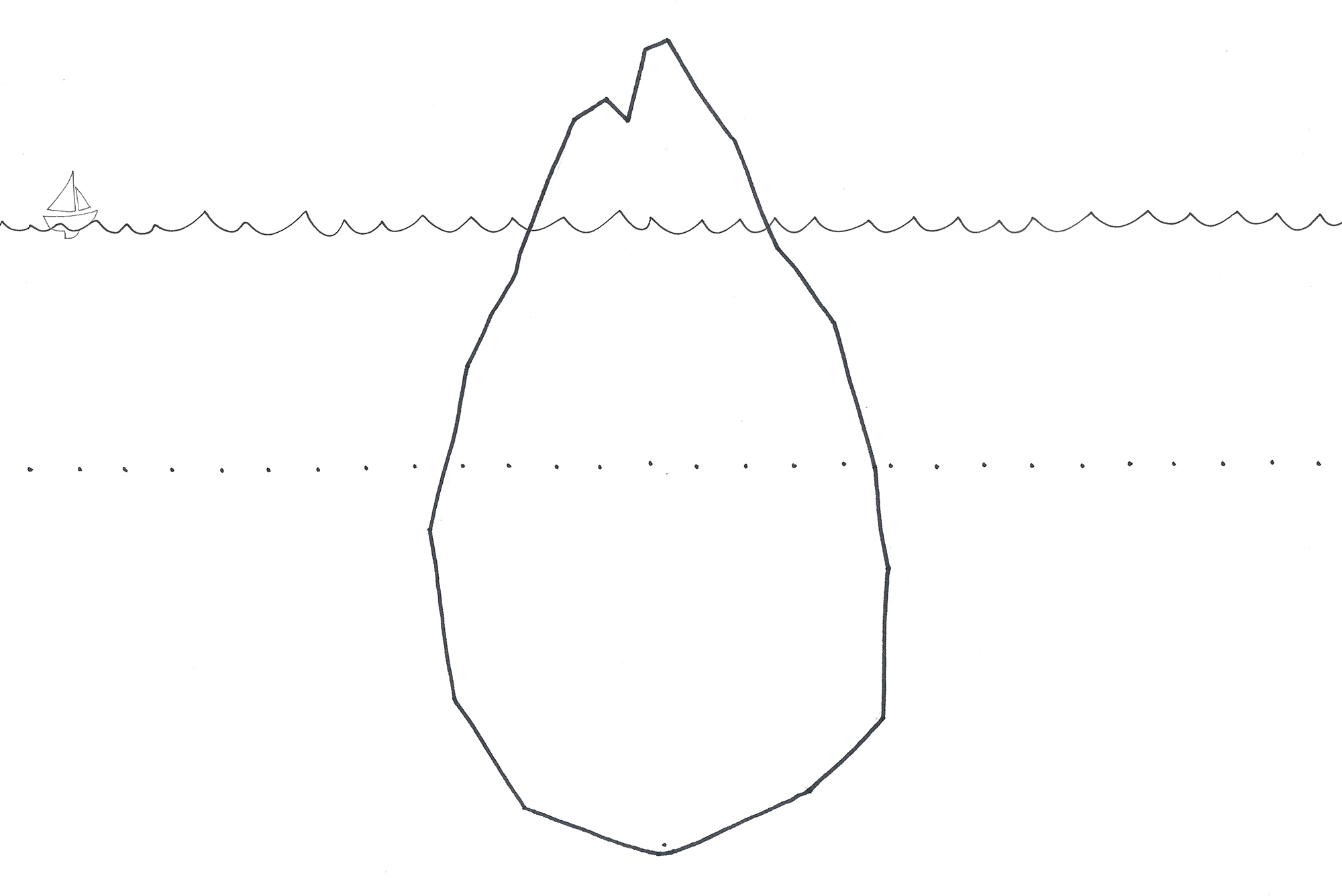Today we have a lesson that reviews the Id, Ego, and Superego - the structure of the psyche. We will also begin reading Lord of the Flies. After reading your three column charts, it's clear that many of you have a good idea what these components are. We are familiarizing ourselves with this because it will change the way we understand ourselves, and Lord of the Flies.
For today, it's important you read through my entire post so we can expand your understanding and prepare you for the reading that is to come.
 |
| A Glacier |
If we apply the structure of the psyche to a glacier, it will look something like this:
 |
| Structure of the Psyche |
Now, what happens if this iceberg rotates? Suddenly, the id comes closer to the surface, and the ego or superego move a little closer to the depths. In an unhealthy mind, one of these structures exerts too much influence over our behaviour. If the Id could act freely without as much authorization from the Ego, someone could become an impulsive shopper at best, or perhaps a murderer or rapist at worst. When the reality principle is compromised, we can behave in dangerous ways. The Id may be too strong to resist, or the ego could be too weak to stay in control of executive functioning. In the same sense, the Superego could be so overwhelming that we feel immense guilt for normal behaviour. If we become terrified of playing the piano because we remember the terrifying shame of making a mistake, our Superego is going awry.
Click on the TEXT tab above. There's an online version of Lord of the Flies. Read Chapter one by Wednesday, April 22.
Click on the TEXT tab above. There's an online version of Lord of the Flies. Read Chapter one by Wednesday, April 22.
No comments:
Post a Comment
Note: only a member of this blog may post a comment.